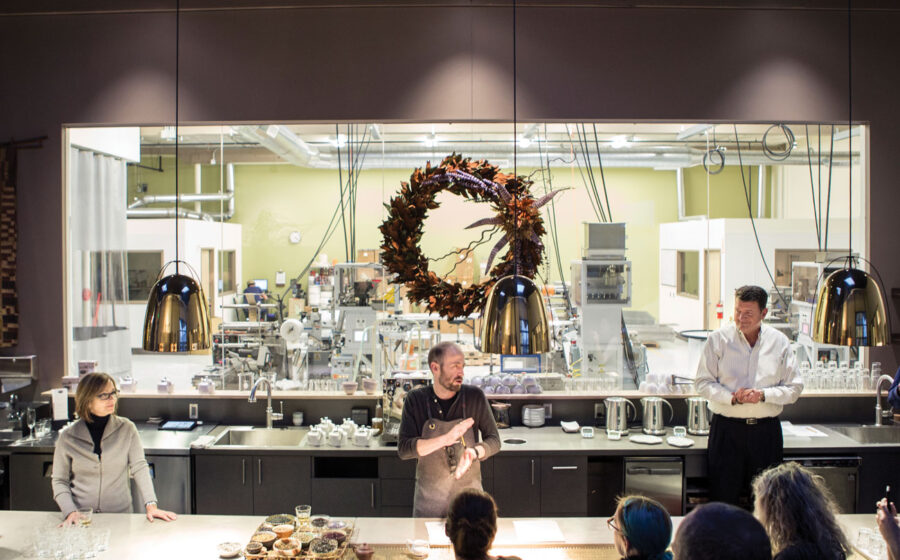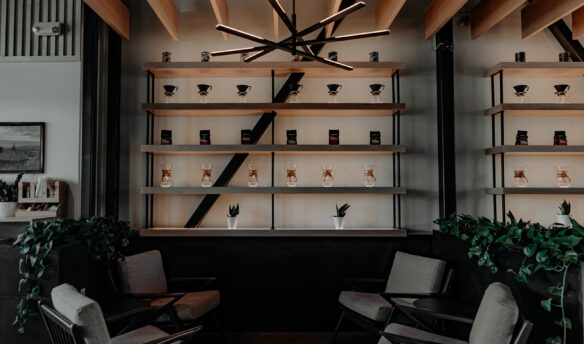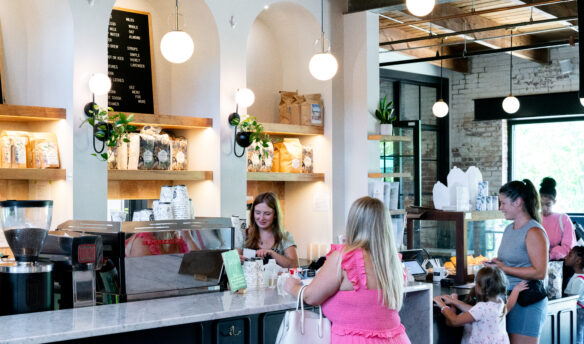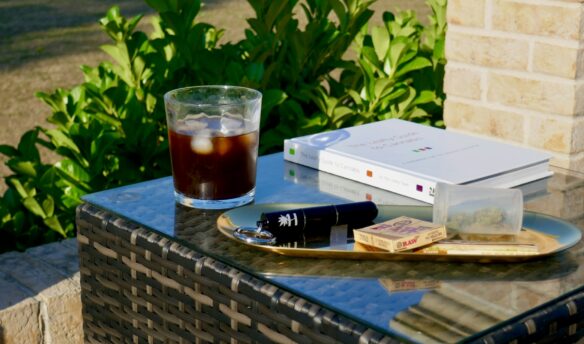[D]espite its name, Portland’s Central Eastside Industrial district is rather a hub for good food and drink. For several blocks along the east side of the river that divides the city, in warehouses hugging train tracks, you’ll find coffee roasters, chocolatiers, brewers, butchers, distillers, and ramen chefs—basically this rainy city’s essential makers. Raw showrooms and minimalist tasting bars are encouraged, and you’re just as likely to have a candlelit meal as you are to get trapped behind a forklift while looking for parking. Here customers are invited into a more exposed culinary atmosphere than they may be used to, where they can enjoy works crafted on site, and watch them be made.
Steven Smith Teamaker opened its new location, a highly anticipated tasting room and production space, in this atmosphere last month. True to its founder’s vision of a transparent—yet cozy—Portland teaworks, the new Smith headquarters hits just the right note between intimate and functional, befitting its new locale. At a recent event preceding the Tasting Room’s grand opening, a train rattled by noisily as Tony Tellin, the company’s head teamaker, spoke to the crowd about the legacy of Smith teas and the flavor-bending Maker Series.
Steven Smith’s retail vision, what he likened to an atelier, or workshop, has been a fixture in Northwest Portland for sometime. In a refurbished blacksmith shop, tea seekers can sip Smith’s popular blends and watch leaves be bagged and boxed through the glass.
In the new space, nearly twice as large, the emphasis is once again on the tea experience, with few retail offerings but ample, elegant, and comfortable seating. A long, brightly lit bar invites cuppings of the company’s inventive projects, from their Maker Series—collaborations with local chefs, including Imperial’s Vitaly Paley, Departure’s Gregory Gourdet, and Salt & Straw’s Tyler Malek—to their barrel-scented series, their nitrogenated chai, and their classic, friendly blends, curated by the late Steven Smith himself and now stewarded by Tellin.
Beyond the bar, through a large glass partition, customers can view a brightly lit production space and the team at work bagging and packaging. Adjacent to the main tasting room, in a small but accessible cupping lab, the blending process becomes less of a secret. It’s an experience that is special even in a tea city like Portland. As Tellin says, “We wanted to pull back the curtain and invite people in.” If this sounds like it implies magic behind the scenes, it does.
—Regan Crisp is Fresh Cup’s associate editor.

















